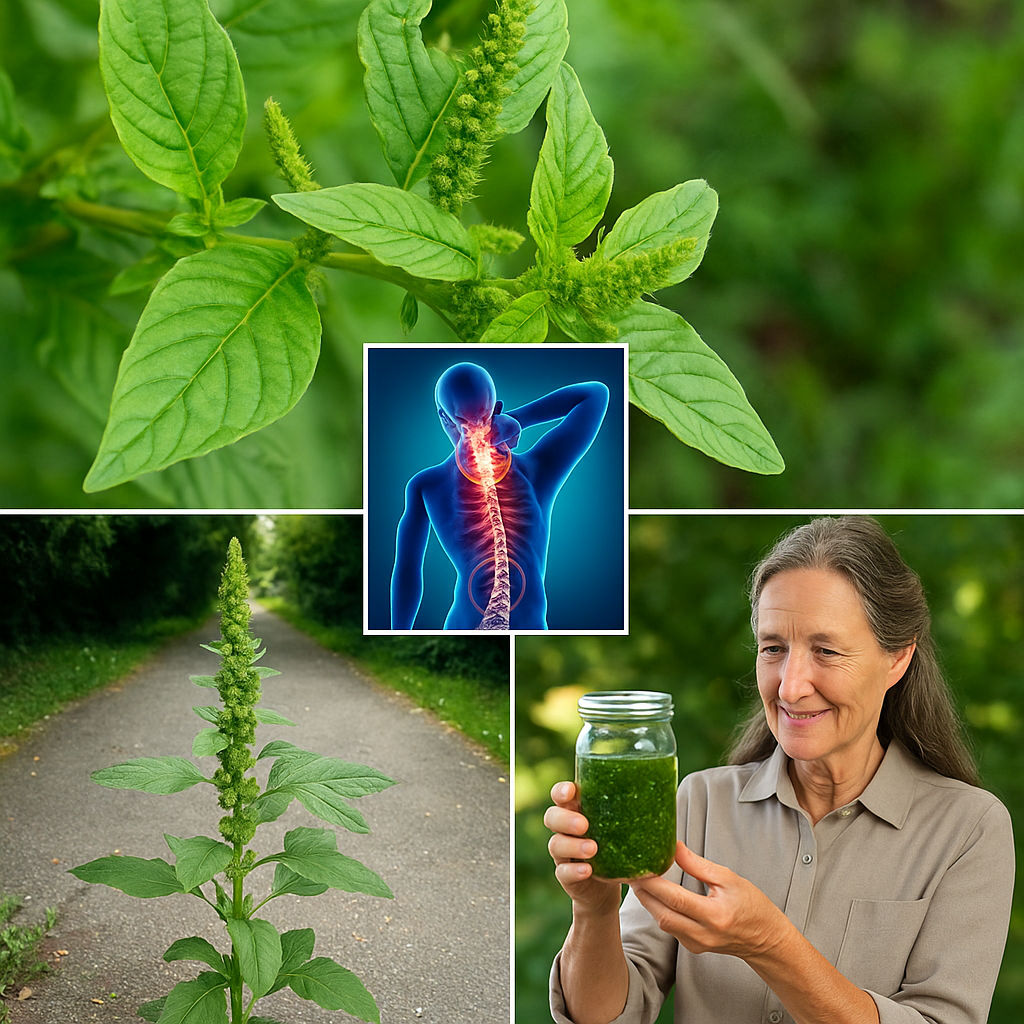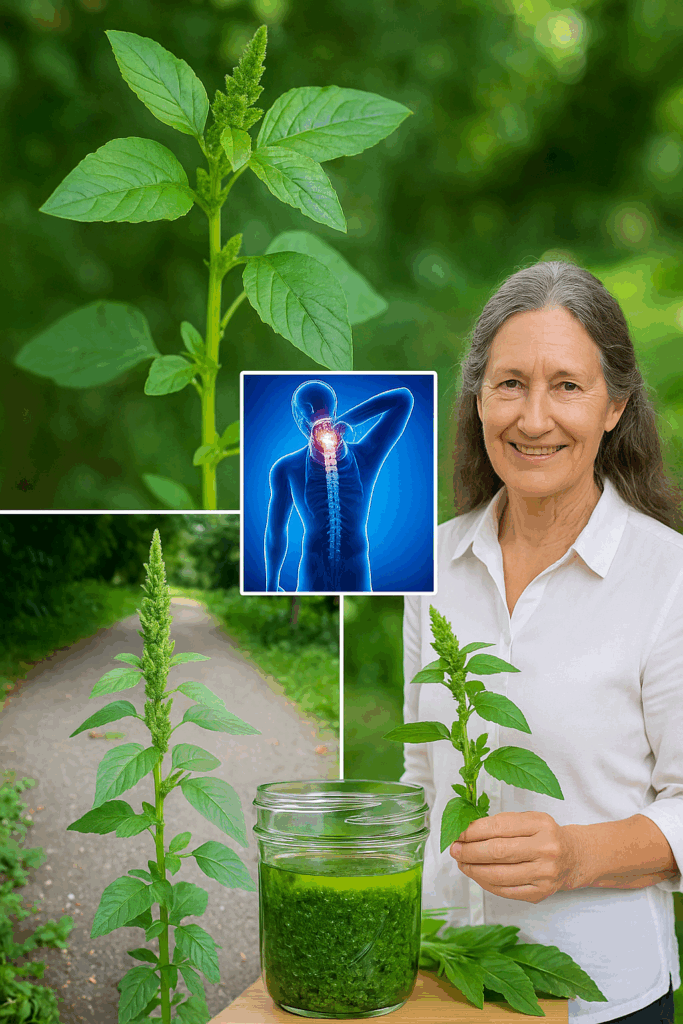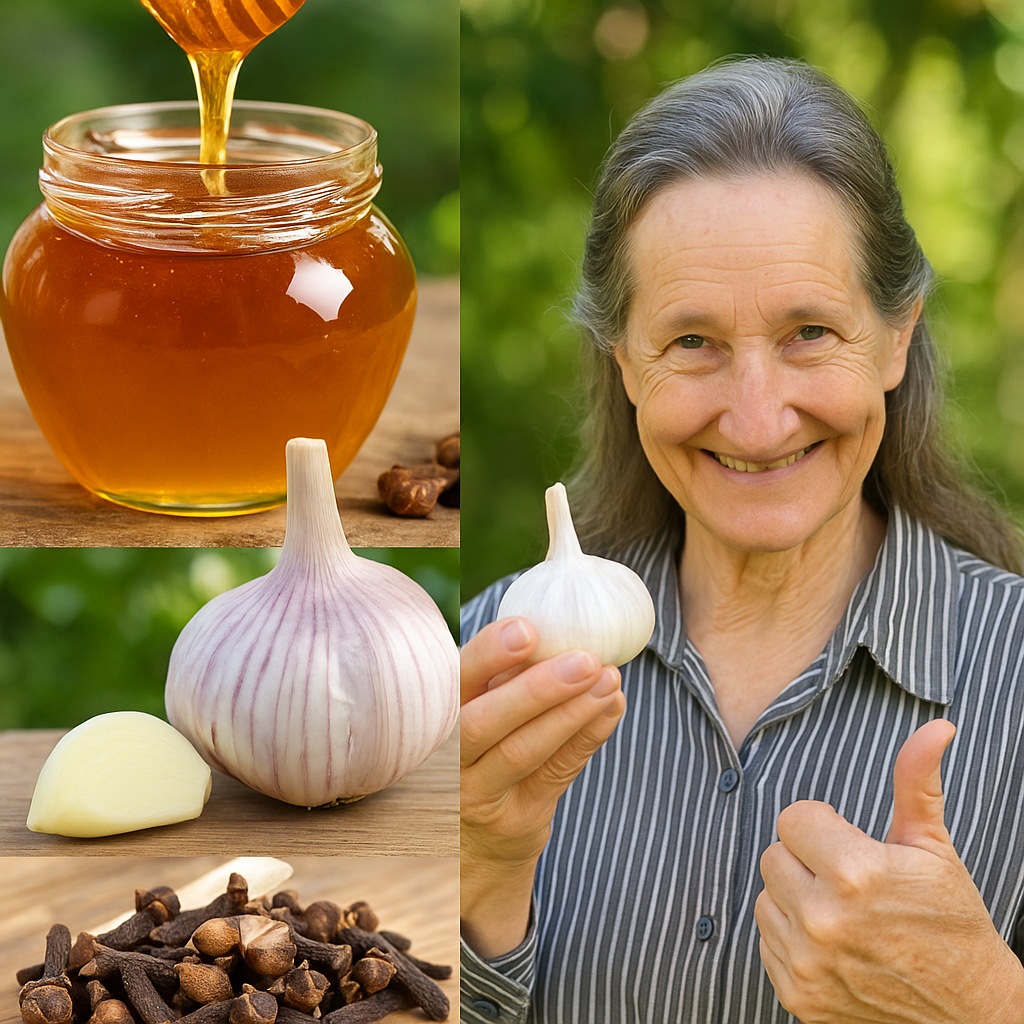At first glance, pigweed might seem like nothing more than an unwelcome visitor in your garden. Yet hidden beneath its hardy exterior lies a nutritional powerhouse that deserves far more respect. Pigweed, belonging to the Amaranthus genus, has been used across cultures for centuries, valued for its impressive health benefits and versatile culinary uses.
Whether you know it as a persistent weed or a forgotten superfood, pigweed offers a rich array of vitamins, minerals, antioxidants, and plant-based proteins that can elevate your health naturally.

🌱 What Makes Pigweed So Special?
Resilient, adaptable, and rich in nutrients, pigweed thrives in a variety of climates and soils. What gardeners often see as a nuisance, herbalists and nutritionists recognize as a gift. Every part of the plant—from the leaves to the seeds—offers potent health-supporting properties, making pigweed a valuable, natural addition to a healthy lifestyle.
🌟 Top 10 Incredible Health Benefits of Pigweed
🦴 1. Supports Bone Health
Pigweed is an excellent source of calcium, a mineral essential for building strong bones and maintaining bone density. Regular consumption can help prevent osteoporosis and support long-term skeletal strength.
❤️ 2. Boosts Heart Health
Loaded with fiber, potassium, and antioxidants, pigweed promotes cardiovascular wellness by helping lower blood pressure, reducing bad cholesterol levels, and improving overall heart function.
🩸 3. Helps Prevent Anemia
Iron-rich pigweed supports the production of healthy red blood cells, making it a valuable food for preventing iron-deficiency anemia and enhancing energy levels naturally.
🛡️ 4. Strengthens the Immune System
With a high vitamin C content, pigweed can help strengthen immune defenses, improving the body’s ability to fight infections and recover faster from illnesses.
👁️ 5. Promotes Eye Health
Pigweed contains vitamin A and beta-carotene, both crucial for maintaining good vision and protecting against eye conditions such as night blindness and age-related degeneration.
💪 6. Provides Plant-Based Protein
The seeds of pigweed are a complete protein source, containing all essential amino acids. This makes pigweed an excellent protein boost for vegetarian and vegan diets.
🍃 7. Enhances Digestive Health
Rich in dietary fiber, pigweed supports healthy digestion, aids regular bowel movements, prevents constipation, and helps regulate blood sugar levels.
🔥 8. Reduces Inflammation Naturally
Pigweed has anti-inflammatory compounds that can help manage chronic inflammation, benefiting conditions like arthritis, inflammatory bowel diseases, and other related disorders.
🛡️ 9. Offers Powerful Antioxidant Protection
The flavonoids and phenolic acids found in pigweed combat oxidative stress, reducing the risk of chronic diseases such as heart disease, diabetes, and cancer.
🍀 10. Provides a Dense Source of Essential Nutrients
Pigweed leaves are bursting with vitamins A, C, and K, as well as minerals like iron, magnesium, potassium, and calcium—all of which contribute to optimal health and well-being.
🥗 How to Incorporate Pigweed into Your Meals
The versatility of pigweed makes it a welcome guest in the kitchen, offering both flavor and nutrition. Here are some easy ways to use pigweed in your everyday cooking:
🥬 Fresh in Salads
Young, tender pigweed leaves add a nutritious, slightly earthy flavor to salads. Combine with other greens for a refreshing and vitamin-packed dish.

🍳 Sautéed or Steamed
Sauté pigweed leaves with olive oil, garlic, and a pinch of salt, much like you would prepare spinach. Steaming is another gentle way to preserve its nutrients.
🍲 Added to Soups and Stews
Toss pigweed leaves into your favorite soups or stews for a natural nutrient boost without overpowering the dish.
🍹 Blended into Smoothies
For an easy nutrient upgrade, add a handful of fresh pigweed leaves into your morning smoothie along with fruits and other greens.
🌾 Cooking with Pigweed Seeds
The tiny seeds can be cooked like quinoa or millet, providing a hearty, protein-rich base for salads and bowls. Ground seeds can even be used to enrich baked goods.
⚠️ Important Precautions When Using Pigweed
While pigweed offers impressive health benefits, it is essential to use it wisely.
🌿 Some species of pigweed contain oxalic acid, a naturally occurring substance that can interfere with calcium absorption and contribute to kidney stone formation in sensitive individuals. Moderation is key.
🌿 Always ensure the pigweed you consume is properly identified and harvested from clean, pesticide-free areas.
🌿 If you have a history of kidney issues or oxalate sensitivity, consult your healthcare provider before adding large amounts of pigweed to your diet.
🚨 Disclaimer
This article is intended for informational purposes only and is not a substitute for professional medical advice. Always consult a qualified healthcare provider before making significant changes to your diet, especially if you have existing health conditions or are taking prescribed medications.
🌟 Why Pigweed Deserves a Place in Your Diet
More than just a tenacious garden invader, pigweed is a nutritional treasure trove that offers tangible benefits for your heart, bones, immune system, digestion, and overall vitality. By embracing this wild green and making it part of your culinary routine, you are tapping into one of nature’s most affordable and abundant health secrets.
Whether blended into a smoothie, tossed into a salad, or sautéed with garlic, pigweed is a simple, accessible way to nourish your body with the vitamins, minerals, and antioxidants it craves 🌿✨
Next time you spot pigweed growing in your garden, think twice before pulling it out. You might just be uprooting one of the best-kept secrets in natural nutrition.


